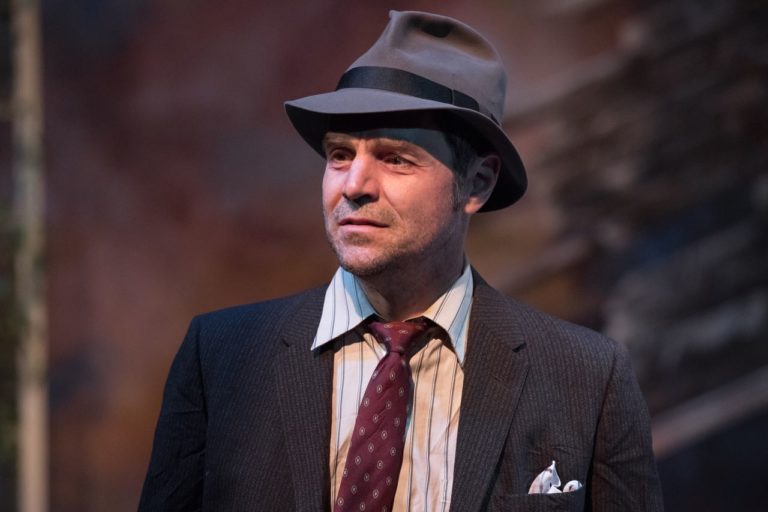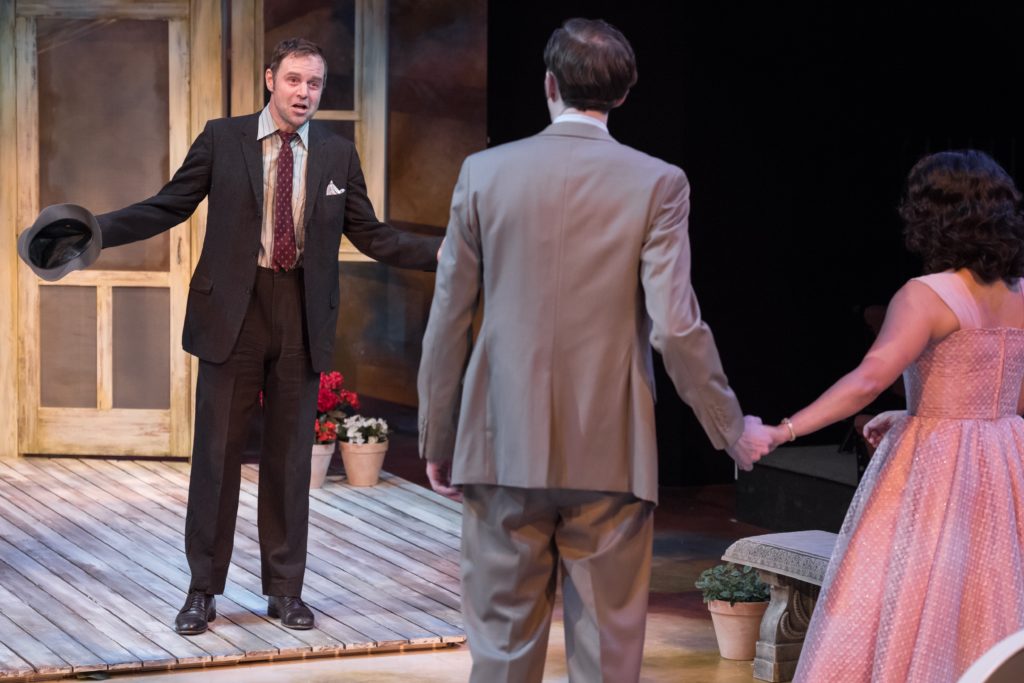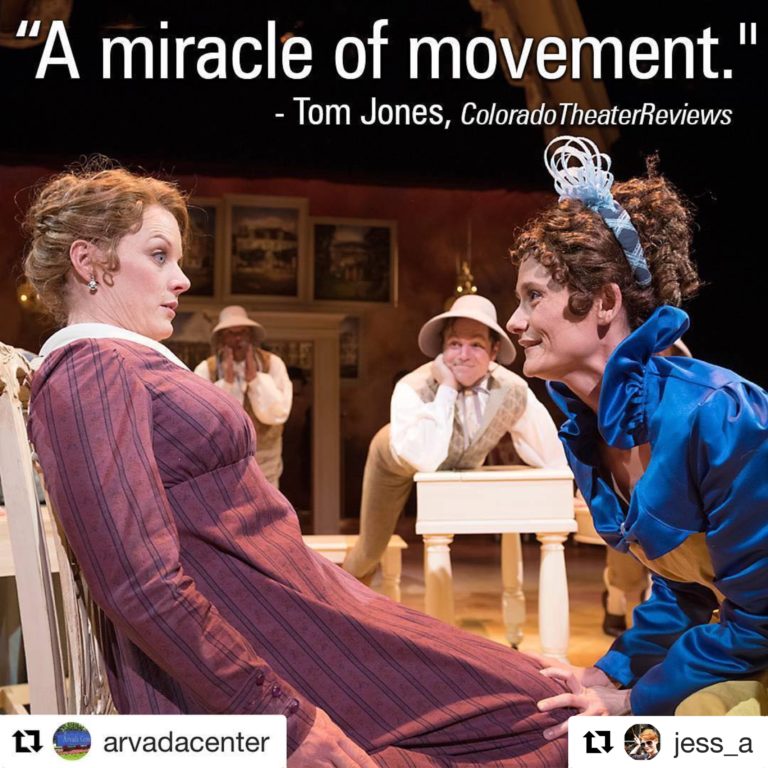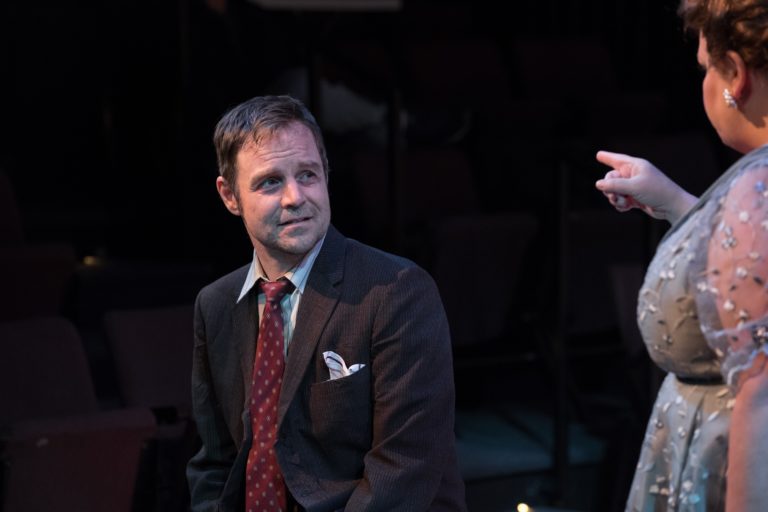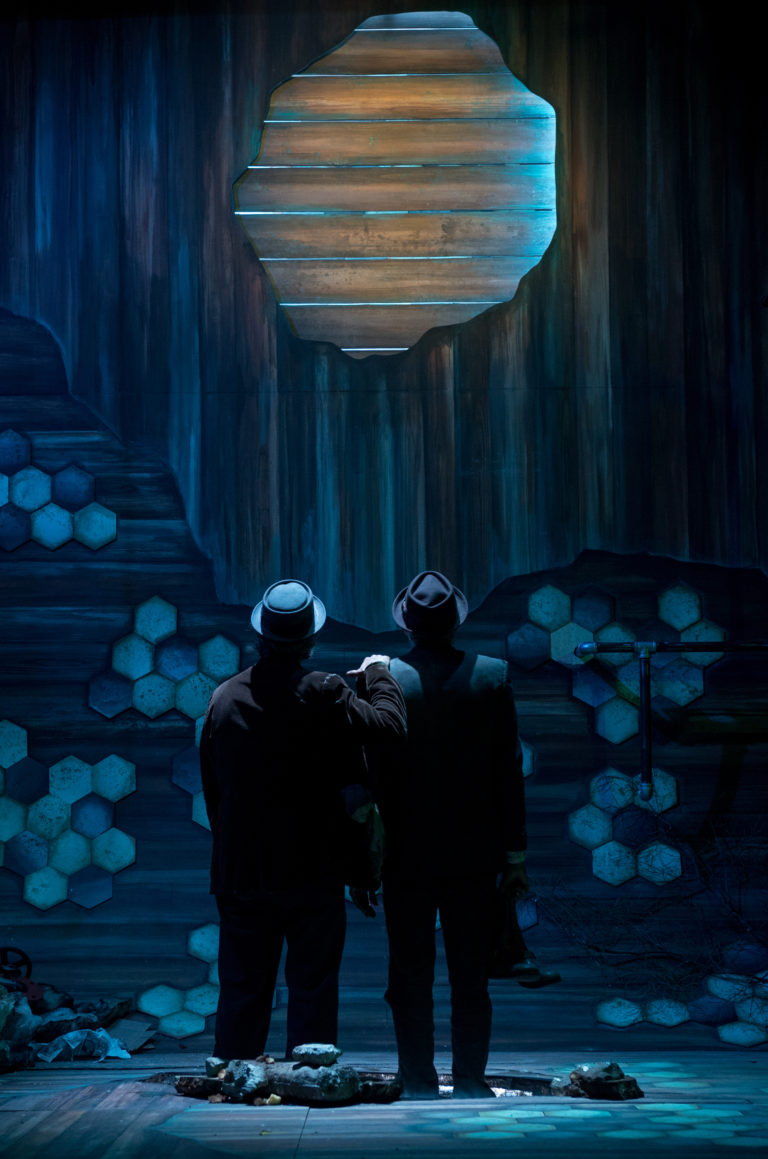Review: Powerful Cast Propels Arvada Center’s All My Sons
For figure-skating aficionados, the 2018 Olympics were immensely exciting because of the competition between two astonishing Russian women: teenagers Evgenia Medvedeva and Alina Zagitova. Medvedeva, thought to be unbeatable, was edged out by her younger rival in the short program; when Medvedeva stepped onto the ice for her free skate, the silence in the arena vibrated with tension. Everyone knew that she had devoted her entire life to preparation for this moment. She skated to Dario Marianelli’s “Anna Karenina” — beautiful, controlled, strong and elegant, with profound artistry and fathomless depth of emotion. But still, Zagitova’s difficult jumps gave her the win. Afterward, the two women embraced. Both were crying. Medvedeva had done everything she could, she told a reporter later: “I left it all on the ice.”
That’s the phrase that came into my head after watching All My Sons at the Arvada Center: The actors left it all on the ice, and their passion brought vivid life to Arthur Miller’s play about war, corporate profiteering and the effect of one man’s moral lapse on his family and community.
Miller’s exploration of the darker side of the American dream is particularly telling because the play premiered two years after the end of World War Two, in 1947. Joe Keller is an affable, small-town everyman who’s worked hard for his family’s security. But as head of a factory during the war, he knowingly okayed a shipment of cracked cylinder heads for P-40 planes, causing the death of 21 pilots. Further, he let his partner, Steve Deever, take the blame, and as the play opens, Deever is serving a prison sentence. There’s some poetic justice in the fact that Joe’s son, Larry, died in the war. A second son, Chris, returned home profoundly changed and grieving the deaths of his men.
All My Sons asks searching questions about what human beings owe each other and what constitutes an ethical life. Joe is at the heart of the corruption, but no one in his world is innocent, from the neighbors who understood what had happened at the factory but decided to put aside their concerns and maintain peace to Joe’s wife, Kate, frantic to believe Larry is still alive. Even Chris, the moral center of the action, comes to understand that perhaps he’d sensed his father’s wrongdoing all along.
In a single day, events hurtle toward revelation and, with an authorial nod to Greek tragedy, retribution: To cleanse his small kingdom and allow his family a measure of peace, Joe must fall.
It’s the children of the man he wronged who force him to confront his guilt. Ann Deever was engaged to Larry; now she and Chris want to marry. For Kate, this is a bitter and unthinkable betrayal. Ann is a clear-eyed truth-teller, who just might be able to bring the families together. But on this day, her brother George breaks the wall of silence that the two have erected against their disgraced father and visits him in prison, where he learns exactly what happened at the factory. Full of rage and grief, he confronts Joe, who — ever the materialist — tries to mollify him with a job offer and a promise to help his father when he gets out.
I had a couple of reservations about this Black Box production. The image of a tip-tilted house that dominates the set seems a touch too obvious, and I wondered if the lugubrious final act wouldn’t have been more moving if the actors had been directed sometimes to work against the emotion.
But overall, the wonder of the evening lies in the strength of the cast, a testament to the center’s commitment to repertory. When actors work together over time, they develop trust and a sense of each other’s rhythms. The stability also gives them the confidence to take risks. Sam Gregory, an actor who’s equally strong in “tragedy, comedy, history, pastoral, pastoral-comical,” leaves it all on the ice as Joe Keller, providing every ounce of calculation, rage, prevarication, fear and grief the role demands. Emma Messenger’s Kate balances terrifyingly on the edge of madness: A feather could topple her. And then there’s Geoffrey Kent, almost choking on his own impotent fury as George.

